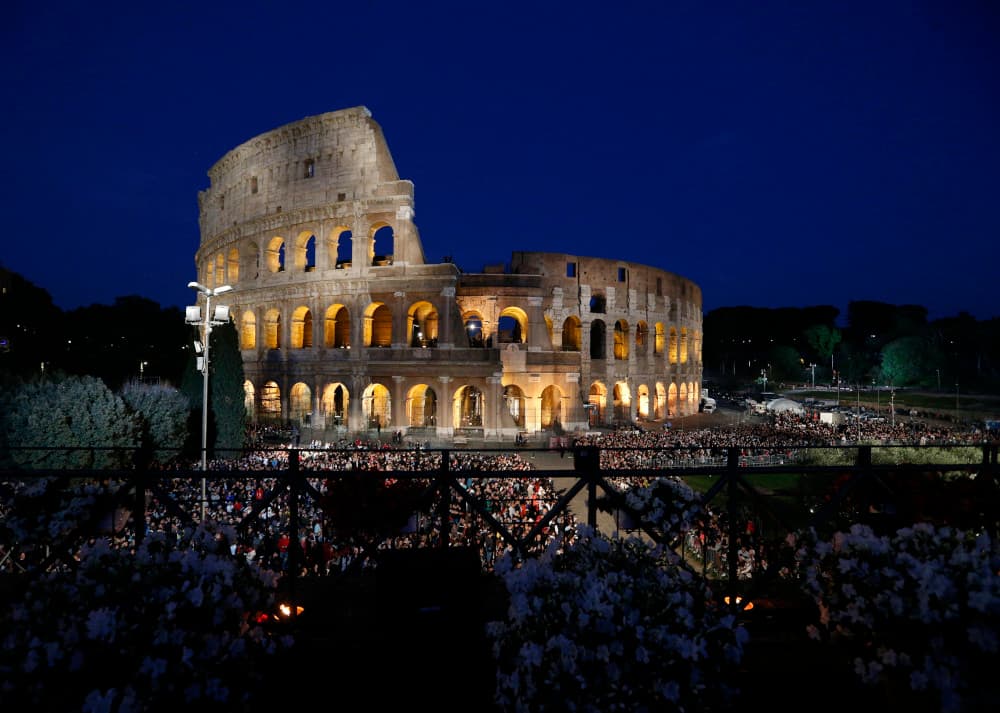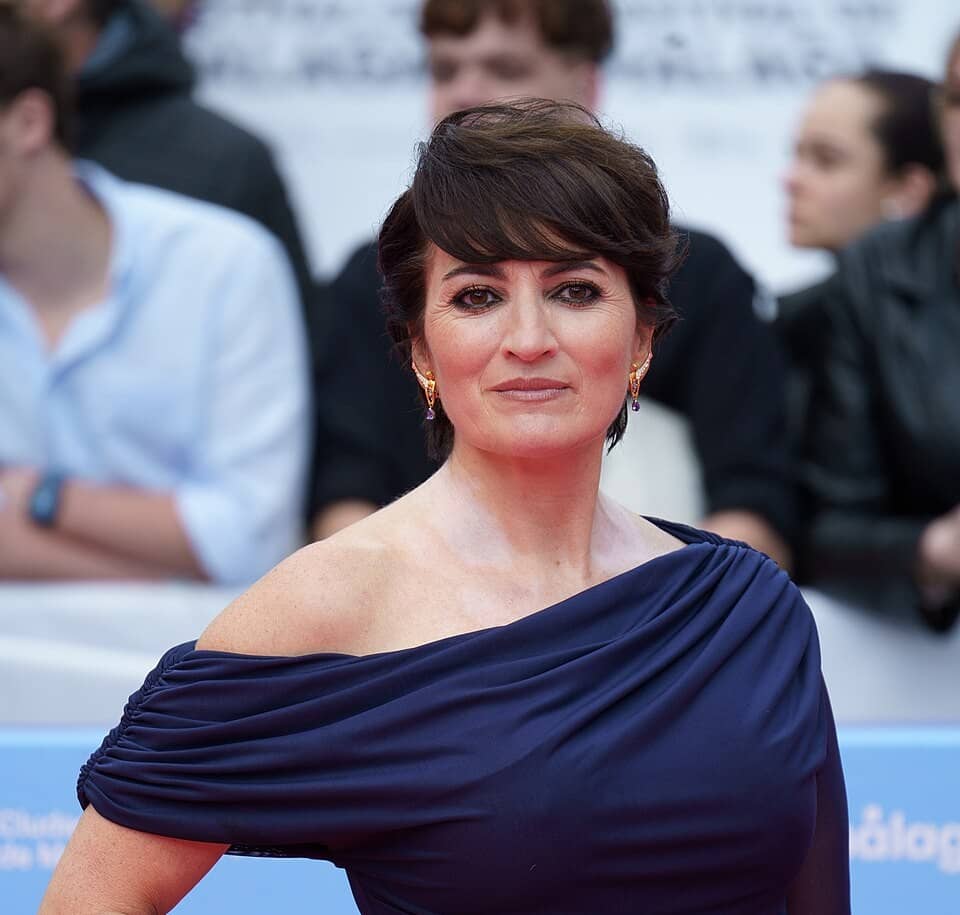ROME – Even in the pope’s absence Friday, the Vatican sought to intervene in the Russia-Ukraine war during its Via Crucis ceremony at Rome’s Colosseum, featuring, for the second year in a row, people from both countries calling for peace.
And, for the second year in row, the symbolism brought protest from Ukraine, claiming that such soothing gestures overlook the realities of Russian aggression.
Despite having presided over a Passion service in St. Peter’s Basilica earlier Friday afternoon, a Vatican statement said that “due to the intense cold in recent days, Pope Francis will follow the Via Crucis this evening from the Casa Santa Marta, uniting himself to the prayer of those who will gather with the Diocese of Rome.”
Francis was discharged from Rome’s Gemelli hospital last Saturday, having been admitted last Wednesday for breathing difficulties. He received antibiotic treatment for bronchitis and returned to the Vatican in time to celebrate Palm Sunday Mass in St. Peter’s Square.
So far, the pope has presided over each of his Holy Week commitments, including a Chrism Mass Thursday morning and a Mass of the Lord’s Supper at a juvenile prison on Thursday evening, as well as Friday afternoon’s Passion service, making the Via Crucis the first event he has missed.
Italian Cardinal Angelo De Donatis, the vicar of Rome, presided over the Via Crucis in the pope’s place, leading the thousands of faithful gathered in the traditional Lenten prayer.
Titled, “Voices of peace in a world at war,” this year’s Via Crucis meditations contained testimonies that Pope Francis has heard in his various international trips and on other occasions. They were compiled by some of the Vatican’s curial departments, though which ones were not specified.
The meditations included testimonies of people from Africa, Central and South America, Asia, the Holy Land and elsewhere in the Middle East, as well as the Balkans and other countries in Europe.
Stories detailed the tragedies and difficulties of war and violent conflict, attacks from extremists, life in refugee camps and harrowing migrant journeys, including dangerous voyages across the Mediterranean into Europe.
The tenth station contained testimonies of young people from Russia and Ukraine. An unnamed Ukrainian youth detailed the nighttime escape of their family from the city of Mariupol and a days-long bus ride before finally making their way to Italy to join their grandmother.
However, the family returned to Ukraine, and, according to the youth, “The situation continues to be hard: there is war on all sides, the city is destroyed. Yet in my heart there remained that certitude which my grandmother used to tell me about when I cried: ‘Everything will pass, you’ll see. And with the help of the good Lord, peace will return.’”
The Russian youth, also unnamed, said he or she feels “a sense of guilt, yet at the same time I do not understand why and I feel doubly bad. I feel stripped of happiness and of dreams for the future.”
“I have seen my grandmother and mother cry for two years. A letter informed us that my oldest brother was dead” after he departed on “a long journey,” the youth said, saying many people told them they should be proud, “but at home there was only much suffering and sadness.”
This youth said their father and grandfather have also left home and “we know nothing more,” and that they have prayed to God for peace, asking that “there be peace in the whole world and let us all be brothers and sisters.”
Last year Pope Francis caused a stir during the Via Crucis by asking a Ukrainian woman and a Russian woman to carry the cross together during the 13th station, “Jesus is taken down from the Cross.” The decision was met with protest from Ukrainians and even the Ukrainian embassy to the Holy See.
While the Vatican did not reverse its decision to have the women carry the cross together, they scrapped the text of the meditation, having faithful pray in silence instead.
This year’s gesture was also met with blowback from Ukraine’s Ambassador to the Holy See, Andrii Yurash, who sent a Tweet saying the Russian youth “forgot to mention: his relatives came in Ukraine to kill not just the father of the Ukrainian boy, but all his family, and not vice versa.”
The Vatican did not disclose the nationality of those carrying the cross, but a group of young people carried it for the 10th station, including a boy and girl who each wore a Ukrainian flag tied around their necks.
This year’s meditations concluded with a series of fourteen “thank you’s,” one for every station, thanking Jesus for his meekness, courage, peace, and love; for “turning tears into smiles,” for his forgiveness, and for the hope and mercy he offers in times of suffering.
“Thank you, Lord Jesus, for the light you kindled in our nights. In reconciling all divisions, you made us all brothers and sisters, children of the same Father who is in heaven,” the prayer read.
In what is the busiest week for the pope, Francis is scheduled to celebrate the Easter Vigil Mass Saturday evening and he is also slated to celebrate Mass Easter morning before giving his traditional Urbi et Orbi blessing, to the city of Rome and to the world.
It’s expected that Francis will proceed as planned, presiding over his Masses while a cardinal celebrates at the main altar.
Follow Elise Ann Allen on Twitter: @eliseannallen














